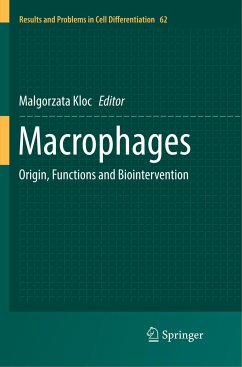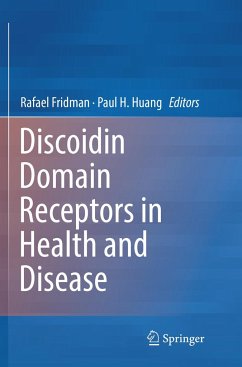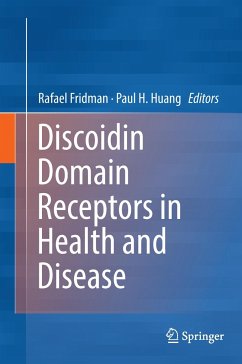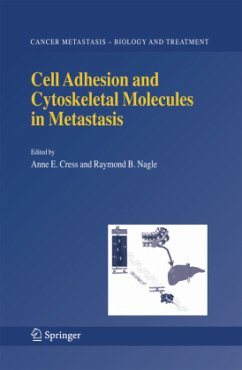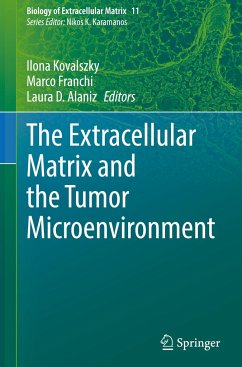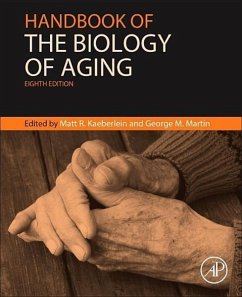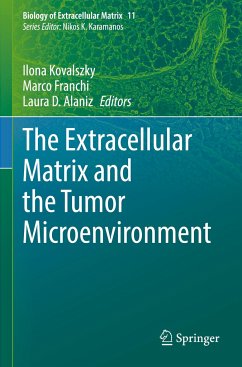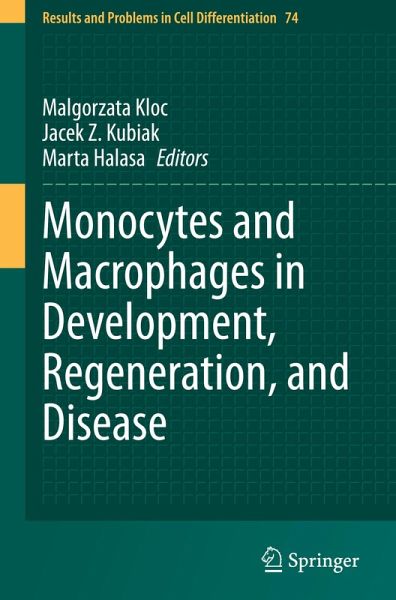
Monocytes and Macrophages in Development, Regeneration, and Disease

PAYBACK Punkte
77 °P sammeln!
The study and therapeutic application of macrophages is a rapidly developing field. Tremendous progress has been made in understanding the phenotypes and functions of macrophages in healthy and diseased tissues and organs.Following the great success of Volume 62: "Macrophages - Origin, Functions and Biointervention" published in this series, this new book now focuses on the role of monocytes and macrophages in development, regeneration and disease. This new volume offers an overview of the latest developments in monocyte and macrophage subtypes and functions across various tissues including ad...
The study and therapeutic application of macrophages is a rapidly developing field. Tremendous progress has been made in understanding the phenotypes and functions of macrophages in healthy and diseased tissues and organs.
Following the great success of Volume 62: "Macrophages - Origin, Functions and Biointervention" published in this series, this new book now focuses on the role of monocytes and macrophages in development, regeneration and disease. This new volume offers an overview of the latest developments in monocyte and macrophage subtypes and functions across various tissues including adipose tissue, bones, liver, lungs, testes, and the nervous system.
The book also reviews existing and potential therapies targeted towards the macrophages and describes their homeostatic functions. It explores how macrophage cell cycle, metabolism, mitochondrial activity, histone acetylation status, and interaction with the extracellular matrix contribute to changes in macrophage phenotype and function in health and disease. Additionally, it examines the interactions between macrophages and cancer cells, bacteria, helminth parasites, and their role in the colonization and spread of HIV.
For ease of reference, the volume is divided into three sections:
Part I Nonimmunologic and immunologic functions of monocytes/macrophagesPart II Tissue/organ specific functions of macrophagesPart III Macrophage functions and dysfunction in diseases
This book will be of interest to researchers working in the fields of developmental biology, immunology, cancer research, and therapeutic applications. It is written to inform and inspire experts and newcomers to the field of macrophages.
Following the great success of Volume 62: "Macrophages - Origin, Functions and Biointervention" published in this series, this new book now focuses on the role of monocytes and macrophages in development, regeneration and disease. This new volume offers an overview of the latest developments in monocyte and macrophage subtypes and functions across various tissues including adipose tissue, bones, liver, lungs, testes, and the nervous system.
The book also reviews existing and potential therapies targeted towards the macrophages and describes their homeostatic functions. It explores how macrophage cell cycle, metabolism, mitochondrial activity, histone acetylation status, and interaction with the extracellular matrix contribute to changes in macrophage phenotype and function in health and disease. Additionally, it examines the interactions between macrophages and cancer cells, bacteria, helminth parasites, and their role in the colonization and spread of HIV.
For ease of reference, the volume is divided into three sections:
Part I Nonimmunologic and immunologic functions of monocytes/macrophagesPart II Tissue/organ specific functions of macrophagesPart III Macrophage functions and dysfunction in diseases
This book will be of interest to researchers working in the fields of developmental biology, immunology, cancer research, and therapeutic applications. It is written to inform and inspire experts and newcomers to the field of macrophages.



